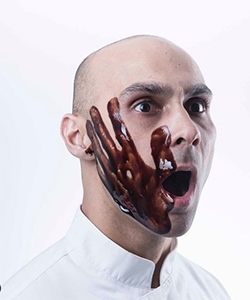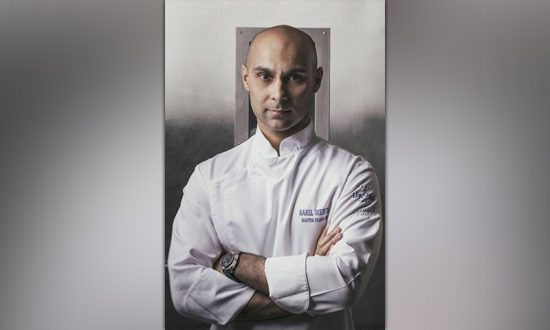Chef Sahil Mehta, India’s first certified Pastry, Chocolate and Bakery expert, has partnered with Tedco to teach and curate the French Patisserie Masterclass course. He is the name behind brands such as Choco Diva, L’opera, The Artful Baker, Renaissance, Cravity, Bread et More, Red Mango and Honey & Dough. While Mehta spent his early life in Paris, France gave him good exposure to the French Culture of Dining. He completed his early education from L’ecole Internationale de Sevres in Paris and graduated in hotel management from Santos Dumont Paris.
Online Culinary Education – The Introduction
More and more people these days are found chasing their dreams of flipping an omelette at a cookery show or running their own kitchen. Online culinary education has swelled recently, but for a profession that pays low wages initially, it is very difficult to understand whether it is worth it.
There is no one correct answer to this long-debated topic. The right answer depends on different factors like the cost of culinary education, career aspirations, alternatives available and temperament.
Educators, restaurateurs, students, chefs, and the new line cooks from across the nation shared with Sahil their thoughts on the importance and the value of online culinary education. All of them agreed that online culinary learning is valuable, but they had different opinions on the right way of getting it for the best value and advantage.
What lies ahead is a close look at the opportunities and challenges of online culinary education. First, we will have a look at the challenges.
Challenges in Online Culinary Education
- First, coming up with a highly interactive classroom environment with free-flowing discussion, inclusion, and camaraderie is a major challenge in online culinary education.
- Of course, there are programs such as Google Meet and Zoom that can be helpful, but they cannot duplicate the in-person classroom environment and experience. This technology falls short when it comes to offering a classroom environment to the students.
- Online instructions generally have the students zoning out with the concepts not being clear to them at all. If the students are successful in grabbing the concepts, they do not know the right way of applying them when work turns in.
- Major changes made to the curriculum for accommodating hybrid teaching require the instructors to modify the amount of study material covered and even their lectures. This further results in the decline of information retention.
- Since students remain challenged in their own lives, it is quite likely for the majority of the classes to be devoted to mental health and wellness check-ins. Due to the daily uncertainties, students can have a problem in getting into the perfect routine for studying and note-taking.
- Yet another challenge is that the students feel that their lecturers would be available to them 24/7 because of the use of the latest technology. Also, you need to be attentive about how and when to deal with the concerns of the students than what is the case with the offline classes.
- There are concepts specifically associated with the culinary field, such as the smell and taste of food, that cannot be conveyed online. Also, students taking up online culinary education do not get the scope of working in a high-energy and technologically advanced kitchen environment.
- It can get very difficult for the instructors to teach different culinary concepts to the students, which speaks of the significance of face-to-face instruction.
Opportunities in Online Culinary Education
One of the greatest opportunities available with online culinary education is to the instructors who get the scope of learning more about their institute’s management system. This, in turn, can greatly enhance the learning experience of the students.
The instructors put in more hard work and become more diligent in transitioning the modalities of culinary courses to accommodate the requirements of the students in the best way possible.
Also, the instructors get the scope of searching and finding varied technologies to deliver online culinary education. And yes, they even get the chance of using the different digital resources provided by their culinary study material.
Instructors can even opt for different teaching programs like a whiteboard and collaborative meeting program, interactive presentation software, question-answer polling app and apps featuring lesson plans and gamified quizzes.
The objective of making online culinary education more interactive has brought a complete world of opportunities and resources into the classroom. These include relevant articles, PowerPoint presentations, demonstration videos, and various other beneficial online resources related to culinary techniques and food.
Yet another opportunity that comes with online culinary education is how it can easily address restricted course offerings. Culinary techniques and lessons are quite clear online, and they are of the shortest duration. Hence, almost any individual can easily take up a course without putting in a lot of hard work and time.
Students also get the scope of watching different videos during their online cooking classes. This further helps them in practising their dish making skills. Last but not least, students get the opportunity to diving into the lessons and learning as per their speed and calibre.
Conclusion
Thus, it can rightly be concluded that online culinary education can be done successfully in the future with a bit of additional time and training to plan the right way of carrying out the classes. Nevertheless, for the time being, it would be beneficial for the students to take up offline courses in culinary art while they can wait for the increased access they would get to the online culinary courses.
More about Chef Sahil Mehta

Chef Sahil Mehta is expertly trained in Blind chocolate tasting, Decoupage de fruits de Mer et Fromage, bar management, patisserie, restaurant management, and pastry creation. The chef has also worked with Salon Wilson, Ritz, Roland Garros, Potel et Chabot and Travelers club n hotel Baltimore.
On his return to India in 2010, he dived into the bakery scene in Delhi and brought about a humongous change through L’opera. Here, the chef discusses the challenges and the opportunities of virtual culinary learning.




